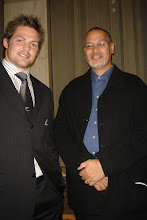 Cook had beaten the French by only a few weeks. French explorer D'surville missed Cook (literally as ships in the night) and unaware of his contemporary renamed Doubtless Bay, Lauriston Bay. On his return to France, Benjamin Franklin used D'survilles notes to plan for the civilisation of New Zealand Maori. D'surville fell out with local Maori and kidnapped a chief who died on the voyage back to France. (surprisingly kidnapping a native wasn't altogether unusual). Another Frenchman, Marion Du Fresne also visited in 1772 but would end up being killed and eaten after his crew had inadvertantly broken tapu. The resulting massacre by his crew was not an unusual response. Cook returned to Britain with reports of the Countries and Peoples he had found.
Cook had beaten the French by only a few weeks. French explorer D'surville missed Cook (literally as ships in the night) and unaware of his contemporary renamed Doubtless Bay, Lauriston Bay. On his return to France, Benjamin Franklin used D'survilles notes to plan for the civilisation of New Zealand Maori. D'surville fell out with local Maori and kidnapped a chief who died on the voyage back to France. (surprisingly kidnapping a native wasn't altogether unusual). Another Frenchman, Marion Du Fresne also visited in 1772 but would end up being killed and eaten after his crew had inadvertantly broken tapu. The resulting massacre by his crew was not an unusual response. Cook returned to Britain with reports of the Countries and Peoples he had found. These reports were read and notes made of what they offered to the Crown. Initially not much, as Britain had an enourmous empire in the Americas and was fully occupied there. Then in 1775 the Americans revolted. When it was over Britain had lost more than just their pride. Since industrialisation had begun to effect Britain, the cities had become larger, poverty had become widespread and with it crime. Prisons had been overwhelmed and in an effort to solve their problems they had exported their prisoners to Maryland and Virginia. Indentured workers were bonded to their employer for between 7 and 14 years. It had had provided a cheap labour for the American and helped solve Britains problem.With American ports closed to them, Britain looked to a temporary solution. Old retired warships and merchantmen were towed up the Thames to London and filled the Hulks with convicts.
A permanent solution was needed. Canada refused to have any, Jamaica had already turned its back on indentured whites (who suffered in the sun and had little immunity to tropical disease) for african slaves and so whites could not be used as forced labour there. (It would upset the idea of racial superiority if there were white slaves) so an expedition was sent to the Mosquito Coast to look for a suitable site for a penal colony.It was a disaster, with something like 80% of the expedition dying. (Malaria, Yellow Fever etc) and although the Government might not have cared about such a fatality rate, it would have been difficult to make such an enterpise economic, as well as difficult to recruit for (probably as popular as a posting to Iraq today) and finally humaniarians amongst the British public may not have been happy about such an arrangement.Then someone remembered Cooks detailed reports.
Analysis showed that the Maori in New Zealand might be to warlike and uncooperative about such an arrangement. But 'Botany Bay' sounded perfect and the 'wretched' people Cook described did not sound like they would provide any resistance. Joseph Bank's had grown to some importance and appears to have had some influence on the choice... except that 'Stingray Bay' (as named by Cook) was not very good as farmland. In fact while it boasted an impressive range of plants, it was effectively a swamp.As well as solving their problem with the convicts, Australia offered the possibility of a secure naval base. By now Britain and France were beginning to shape up for yet another war. There was a possibility that such a conflict could spread to the Pacific, (as both nations had commercial interests there). A base there would help secure trade routes. As a by product, the timber and flax in New Zealand might also be useful in reprovisioning a fleet.Naval ships at that time tended to go through masts and rope at a huge rate. Norfolk Island pines and New Zealand trees would make excellent masts or planking, while rope and canvas were both a product of treated flax.
In 1788 the First Fleet arrived off Botany Bay. The 780 convicts and their soldiers who arrived lacked any agricultural skills. They began to farm but failed miserably. Even a move to Sydney Cove did not dramatically improve their position. A move to trading for food with the Maori improved their situation which in the first few years was precarious. This contact with Maori increased steadily. New Zealand was now open to explorers and exploiters.




No comments:
Post a Comment